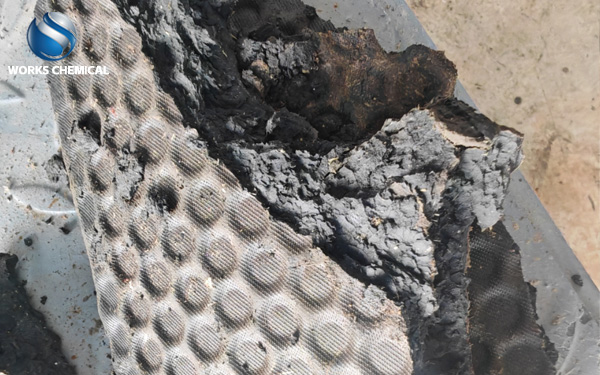
With the continuous improvement of environmental protection requirements, the fields of sewage treatment and sludge treatment are undergoing profound changes. As a key technical product among them, sludge enhancers are demonstrating huge market potential and environmental protection value through continuous technological innovation.

In terms of technological innovation, new types of chemical conditioning agents, coagulants and flocculants are constantly emerging. Some sludge enhancers use special organic high-molecular polymers as the main components, and their mechanisms of action are unique. With the core function of cell wall breaking, it also exerts functions such as electro-neutralization, adsorption and bridging, which can effectively release the water inside the cells, discharge capillary water, interstitial water and bound water, fundamentally overcome the specific resistance of sludge, reduce the viscosity of sludge, greatly improve the dewatering performance of sludge and significantly enhance the efficiency of sludge treatment. After practical application verification, the sludge efficiency enhancer can successfully reduce the moisture content of the dewatered sludge to below 60%, achieving true sludge reduction.
A major breakthrough has been made in molecular-level research. Researchers have successfully developed new surfactants and polymers with precise targeting functions. These innovative components can precisely identify the surface of sludge particles, rapidly alter their surface charge distribution, and prompt originally mutually repelling sludge particles to quickly coalesce into clusters, creating extremely favorable conditions for the subsequent dewatering process. This precise mechanism of action has significantly enhanced the efficiency and effectiveness of sludge treatment, reducing energy consumption and resource waste during the treatment process.
The development of intelligent control and precise dosing technology has further strengthened the application of sludge efficiency enhancers. With the aid of advanced sensor technology, key parameters of sludge such as flow rate, concentration and pH value can be monitored in real time. Based on big data analysis and automated control algorithms, the intelligent system can precisely calculate and automatically adjust the dosage of sludge enhancers, ensuring that the optimal ratio of enhancers to sludge can be achieved under different water quality and quantity conditions. After a large-scale sewage treatment plant adopted this technology, it was reported that the dosage of the enhancer was reduced by 20% to 30%, while the sludge dewatering effect was improved by 15% to 20%. This not only lowered the cost but also enhanced the stability of the treatment effect.
From the perspective of market prospects, sludge enhancers are in high demand in sewage treatment plants, papermaking sludge plants and various industrial sludge treatment fields. Sewage treatment plants are confronted with an increasing volume of sewage and higher discharge standards, and urgently need efficient sludge treatment solutions. Sludge enhancers can help them improve treatment efficiency, reduce costs, and meet environmental protection requirements, with a broad market space. Due to the particularity of the sludge in papermaking sludge plants, traditional treatment methods are not very effective. However, specialized sludge enhancers can solve multiple problems such as raw material recycling and utilization, product quality improvement, and environmental protection pressure, and are warmly welcomed by papermaking enterprises. In other industrial fields, with increasingly strict environmental protection regulations, the requirements for sludge treatment are also getting higher and higher. Sludge enhancers, with their outstanding performance, will continue to expand their application in these fields.
In conclusion, driven by technological innovation, sludge enhancers are becoming an indispensable and important force in the environmental protection field, providing efficient and reliable solutions to the increasingly severe sludge treatment problems. Their market prospects will also become broader with the continuous progress of technology and the in-depth promotion of application.